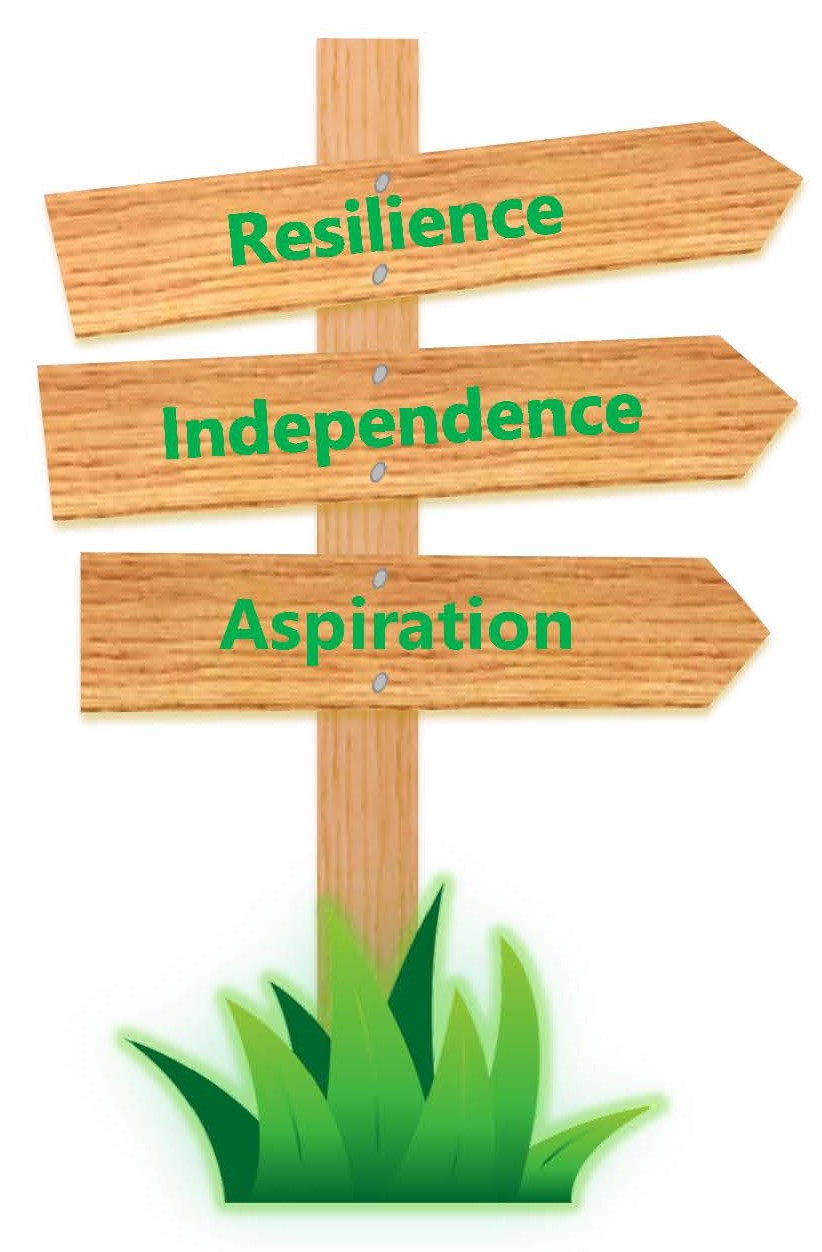Design & Technology
Our Vision
Our school is one family, united in love and deeply rooted in our Christian values, where together on life’s journey we flourish, striving for excellence in all that we do. Inspired by the transformation of St Paul, and enlightened by the glory of God, we will shine like stars to make the world a better place.

Our Curriculum Drivers
Our three curriculum drivers, Resilience, Independence and Aspiration shape our curriculum breadth. They are used to ensure we give our children appropriate and ambitious curriculum opportunities.
Intent
At St Paul’s, we intend to develop pupil’s curiosity and excitement by creating practical opportunities for them to understand why and how products are created. The study of Design and Technology will aim to inspire pupils to be innovative and creative thinkers who are able to consider how products within the wider world can be used and improved. As they learn about past and present inspirational figures from around the world they will become confident and motivated to see that they too have the opportunity to be successful. Within their time at St Paul’s, the children will grow as independent learners by building upon their existing skills, developing their vocabulary and broadening their knowledge. Over the course of their study they will develop the ability to take risks, through researching, designing, creating and evaluating as well as having the ability to critically assess and reflect on their ideas and products. Through the Kapow scheme of work, children will build an awareness of the impact of Design and Technology on their lives and become resourceful, enterprising citizens who will have the skills to contribute to future design advancements.
Implementation
In EYFS children will use and explore a variety of materials and techniques and explain the processes they use.
Children from Year 1 upwards will be expected to complete a D&T unit i on a half-termly basis (alternating with Art). Teachers will use the D&T Long Term Plan as well as Kapow to inform their planning and support the development of the children’s D&T skills. Each lesson of a D&T unit will need to form part of the D&T cycle (Research, Design, Make and Evaluate). The subject leaders have organised the Kapow units so that the D&T skills being taught are progressive and built upon throughout the school. The skills in six key areas are; Mechanisms, Structures, Textiles, Cooking and Nutrition, Electrical systems (KS2) and Digital world (KS2).
KS1 will be provided with a ‘design criteria’ in order to help plan and evaluate their final product. Pupils in KS2 will take ownership of their design by creating their own ‘design criteria’. All children will consider the world in which we live and how we can make it better through the products that they create. To embed this, teachers will need to use and ask effective questions (e.g. How has this been put together? How can this be strengthened? How can this improve the lives of others?). All pupils will be introduced to historical or present individuals from around the world who have created products that we use today.
Impact
The impact of our D and T curriculum can clearly been seen in the children's D and T books, which pass on with them to the following year group. At the beginning of each unit a detailed knowledge organiser outlines the big questions and building blocks alongside the key skills that the children will build on and those which will follow. The children are given the opportunity to consider key vocabulary that will be taught during the unit and what their initial thoughts about the meaning of the words are. Throughout the unit a key focus on vocabulary and its meaning is highlighted.
The opportunity to evaluate and reflect on the learning is planned for towards the end of the unit to enable the children to see how their learning is progressing and where they need to take it next. On completion of the unit of work children are able to self assess against the completed product.
We are moving towards making summative judgements from the children's research and final piece.
